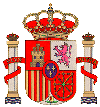The Fight for
Self -Determination
What to Spanish Said
at the United Nations October 1999


Statement to the 4th committee
for decolonisation
| Extract from UN Press Release |
SILVIA JOSEFINA CORTES MARTIN (Spain) said that the colonial
situation of Gibraltar required the attention of the
international community. Her delegation was once more requesting
an end to it.
The General Assembly had clearly indicated how the
decolonization of Gibraltar should be implemented. In most cases,
decolonization had been achieved through self-determination by
colonized populations. However, that principle should not be
applied in every case. Present inhabitants of Gibraltar were not
a colonized people: they were descendants of those brought in by
the colonizing people to trade and to work at a military base.
That was the sense of General Assembly resolution 2353 (XXII),
paragraph 2, which declared the referendum organized at the time
by the administering Power in Gibraltar contrary to General
Assembly dispositions.
The international community and the General Assembly resolutions
had established certain limits to the application of the
principle of self- determination, she said. In certain colonized
countries, decolonization had been achieved through restoration
of territorial integrity of the State in question. That should
be the case of Gibraltar. In its specific case, resolution 2353
(XXII) stated in its preamble that any colonial situation, which
completely or partially destroyed the national unity and
territorial integrity of a country was incompatible with the
Charter of the United Nations. Several General Assembly
resolutions had reiterated the applicability of the principles of
territorial integrity to the decolonization of Gibraltar.
The update of the so-called "constitution" of Gibraltar laid down
by the United Kingdom in 1969 had only made matters worse, she
said. Spain would oppose any initiative fraudulent to the Treaty
of Utrecht, the Spanish-British negotiating process and the
doctrine of the United Nations. Although the transfer of
authority of Gibraltar under the Treaty of Utrecht had not been a
voluntary act, Spain had always respected that Treaty. The Treaty
of Utrecht and its clauses, including Article X, were applied.
Gibraltar might be British or Spanish, but any other option was
excluded. Spain had deep respect for the rights of the population
of Gibraltar, but that did not make it a nation with sovereign
rights.
Gibraltar was a "parasite" economy that survived thanks to and at
the expense of Spain and it was keeping the neighbourly Spanish
territory depressed, she said. Spain wished economic prosperity
to the inhabitants of Gibraltar, but its economy could not be
established on corrupt grounds. Gibraltar should establish a
sound and solid economy with full respect for the rules of the
European Union. There should be no illicit trafficking or
financial opaqueness.
Negotiations between Spain and the United
Kingdom were held within the Brussels Process, which had started
in 1984. The last proposal dated back to 1997. In spite of the
goodwill of successive Spanish Governments, there had been no
improvement on that issue. The inhabitants of Gibraltar had
nothing to fear from the dialogue. Spain had full intention to
ensure due respect for the legitimate interests of the
inhabitants of Gibraltar.
Return to Index